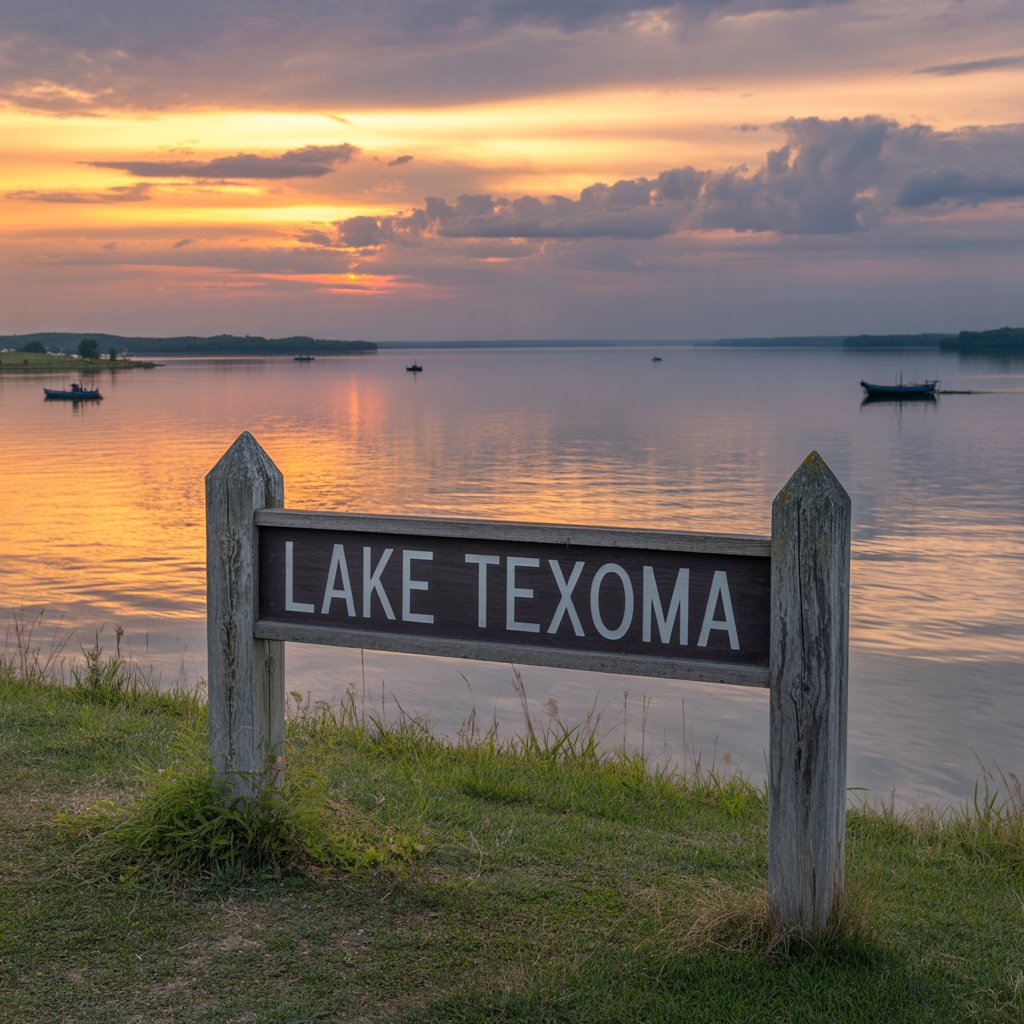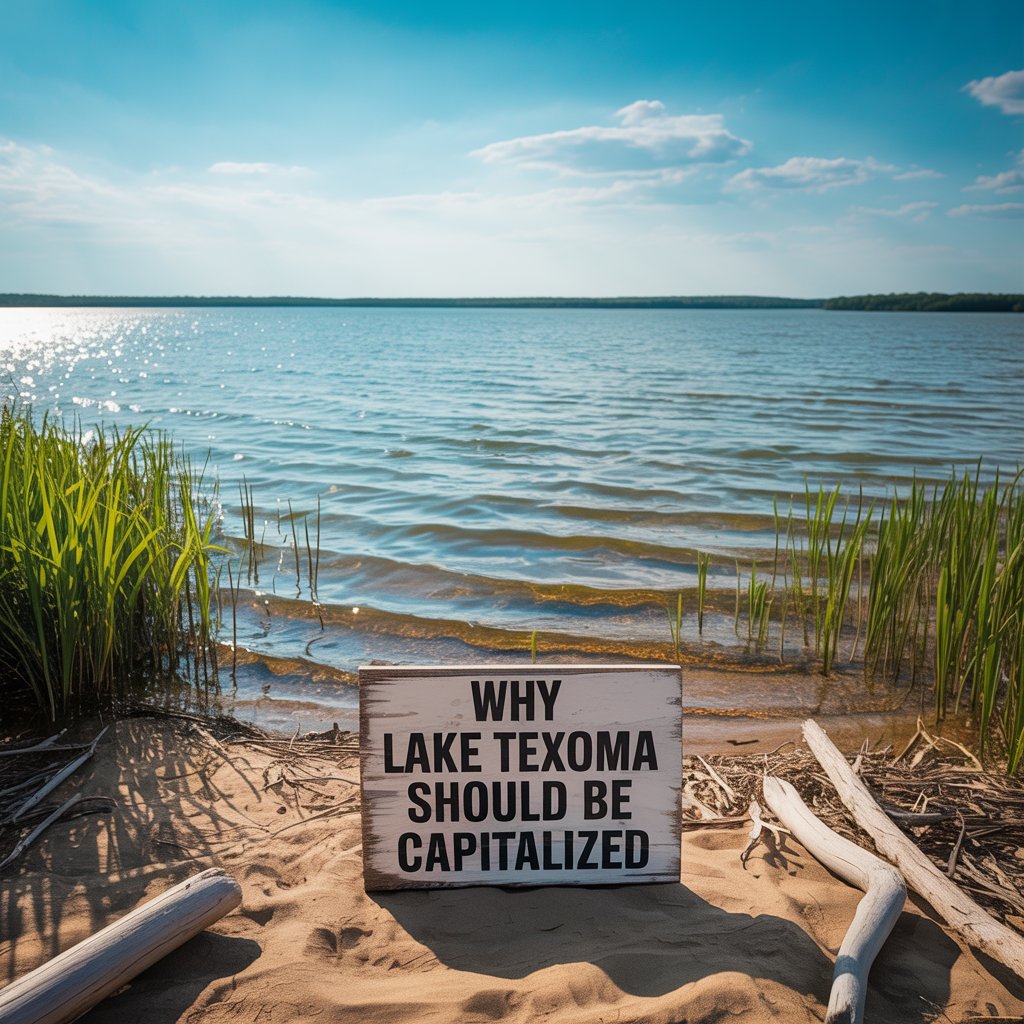Introduction: What’s in a Capital Letter?
In English, capitalization is not just a grammar rule—it reflects importance, identity, and context. When it comes to geographic names, proper capitalization becomes even more critical. That brings us to the question: should “lake texoma” be capitalized? The answer is a resounding yes. This article explores the reasons why Lake Texoma should be capitalized, discusses its significance, and highlights how capitalization adds value to geographical recognition, communication clarity, and written professionalism.
Table of Contents
Understanding Proper Nouns and Capitalization
In grammar, a proper noun refers to the specific name of a person, place, or entity. It always deserves a capital letter. “Lake Texoma” is not just a random lake. It is a named, geographically significant location that sits on the border of Texas and Oklahoma. That alone justifies its capitalization. Writing “lake texoma” in lowercase not only breaks basic grammar rules but also strips the name of its identity and distinction.
Capitalizing the name ensures that it gets the recognition it deserves. This rule applies to all major geographic names—Lake Michigan, Lake Victoria, and yes, Lake Texoma should be capitalized the same way.
The Cultural and Geographical Significance of Lake Texoma
Why does the name matter? Because Lake Texoma is more than just a body of water. It’s one of the largest reservoirs in the United States, with millions of visitors every year. It holds recreational, economic, and environmental value. Boating, fishing, camping, and tourism all revolve around this place.
Failing to capitalize “Lake Texoma” reduces its status in writing. Readers may interpret lowercase usage as casual or uninformed. For anyone writing about the area—be it a journalist, travel blogger, or student—it’s essential to respect the place by capitalizing its proper name.
Language Rules: Why Capitalization Matters
Grammar isn’t just about following rules—it shapes how we understand and interact with language. Inconsistent or incorrect capitalization can confuse readers. When someone reads “lake texoma,” they may question whether it refers to a general category or a specific name. That ambiguity weakens communication.
Lake Texoma should be capitalized because it follows standard English rules and helps maintain clarity. Just as you would never write “statue of liberty” in lowercase, treating Lake Texoma with lowercase letters fails to honor its recognized name.

SEO and Digital Writing: Capitalization Impacts Visibility
Online search algorithms favor properly written content. Misspellings and grammar mistakes—including incorrect capitalization—can negatively impact search engine optimization (SEO). When content creators or bloggers use lowercase for proper nouns like lake texoma, it weakens their site’s authority.
Google ranks pages higher when they demonstrate expertise, trustworthiness, and grammatical accuracy. Therefore, for writers or marketers promoting tourism or real estate around the area, it is not just grammatically correct—it is strategic to capitalize the name. Simply put, Lake Texoma should be capitalized to boost visibility and maintain credibility.
Educational Standards and Professional Writing
In educational settings, grammar reflects the quality of a student’s work. Teachers expect proper nouns to be written correctly. Lowercase “lake texoma” in a paper or assignment will likely lead to markdowns. In professional reports, documents, or emails, incorrect capitalization gives off a careless impression.
Whether you’re working in academia, journalism, business, or government, consistency in grammar builds trust. Proper capitalization shows attention to detail, making your writing appear thoughtful and precise. That’s why across all settings, Lake Texoma should be capitalized without exception.
Trust, Accuracy, and Reader Perception
Trust in written content depends on how it’s presented. When a reader sees a lowercase “lake texoma,” they may assume the author lacks knowledge or attention to detail. That impression matters in articles, travel guides, and even casual blog posts.
Proper capitalization signals that the writer values the subject. It also reassures readers that the information can be trusted. So whether you’re describing a weekend getaway, reviewing fishing spots, or sharing historical facts, always write it correctly—Lake Texoma should be capitalized every time.
The Psychological Impact of Capitalization
Humans instinctively recognize capitalized names as important. Capital letters act as visual cues that something is official or worth noting. Seeing “Lake Texoma” with capital letters automatically communicates its place on the map—literally and symbolically.
Using lowercase diminishes that effect. Readers may gloss over it, misread it, or misinterpret the context. Writing “Lake Texoma” properly makes the word stand out, signals formality, and reinforces its position as a recognized place.

Consistency Across Platforms and Media
In digital media, consistency is king. From social media captions to official websites, brand consistency builds recognition. Tourist agencies, government websites, and outdoor recreation companies all refer to Lake Texoma with capital letters. This consistency supports branding and reputation.
Any variation, such as “lake texoma,” appears amateurish and out of place. That inconsistency can hurt a brand’s trust factor and diminish the user experience. To align with industry standards and maintain a professional image, it’s non-negotiable: Lake Texoma should be capitalized across all content types.
When Mistakes Happen: The Cost of Carelessness
Sometimes writers overlook capitalization due to speed or inattention. Unfortunately, that one small error can change how a piece of content is perceived. Imagine a brochure or tourism ad with “lake texoma” printed in lowercase. It might look cheap or unofficial, even if the information is excellent.
Correcting this is easy. Always double-check names of locations and apply proper formatting. In the case of Lake Texoma, never let grammar mistakes undermine the quality of your message. It’s a detail that shows professionalism and care.
Also read: Discover the Power of 8tshare6a Software
Final Thoughts: Make Capitalization a Habit
Respecting names is a matter of both grammar and courtesy. Lake Texoma should be capitalized because it is a real, identifiable place with history, value, and cultural relevance. Writers, educators, businesses, and creators all benefit from getting this simple rule right.
Proper capitalization builds clarity, trust, authority, and consistency. It ensures that your message reaches the audience with the respect it deserves. So next time you write about that scenic, adventure-filled destination along the Red River, don’t forget—Lake Texoma should be capitalized.


